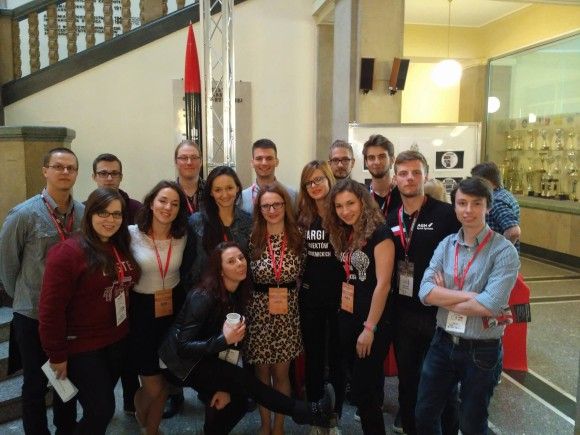Armed Forces
Can Polish military industry model itself on Israeli? Part II
During latest International Defence Industry Exhibition in Kielce we were able to appreciate effects of work of defence industries from many countries. Present this year was also record number of eleven companies from Israel. While going through their rich and advanced offer we should ask ourselves following question: what kind of tax and legal conditions are faced by domestic and international investors in Israel? How Israel attracts not only capital investments but convinces others to share advanced technologies which can be developed further in Israel. And dilemma which is most of importance to us. Can Poland if not copy specific solutions, at least observe certain directions and trends which can be taken into account by our lawmakers.
This article should be considered as addendum to previous article titled “Can Polish military industry model itself on Israeli?”. Below we list specific tax and legal solutions used by Israel to support its industry, not only military one, as well as to develop its technological base.
1. „Law for the Encouragement of Capital Investments”
Company in order to qualify needs to be registered in Israel and has to be internationally competitive (i.e. having export capability). However, Biotechnology and Nanotechnology companies do not have to meet the "export" requirements to qualify, since those are considered to be priority areas of research. Under this law CIT tax rate is 12 % in highly developed areas of Israel - center of the country, and 6% in less developed areas- “Priority Area” (Galilee region and Negev desert). CIT tax rate can be also lowered to respectively 8% and 5% if company meets following requirements.
a) Total annual income in Israel of at least 1.5 billion shekels
b) The combined balance sheet of the company is at least 20 billion shekels.
c) Company fulfills one of the following requirements
- Investment in productive equipment of at least 800 million shekels in the center of the country or 400 million shekels in a Priority Area over a three-year period.
- Investment in R&D of at least 150 million shekels in the center of the country (100 million shekels in a Priority Area).
- Employing at least 500 new employees in the center of the country or 250 new employees in a Priority Area.
(This law is equally applicable to citizens and non-citizens).
2. Support for „Research and Development” programs in Israel.
A) The R&D Fund
Financing by state of Israel up to 50% of total costs of promising R&D programs (up to 60% of programs taking place in “Priority Area”)
B) „Tnufa” program
Financing by state of Israel of up to 85% of total costs and up to 65 000 USD of promising start-up companies.
C) “The Technological Incubators” program
Financing by state of Israel up to 85% of total costs and up to 800 000 USD of promising R&D programs and start-up companies, which by design will not be profitable for up to first three years. Interesting fact about “Technological Incubators” is that it resulted in such a great success that it was privatized in 2002 and technically is not part of state given support.
D) „Magneton” and „Nofar” programs
State of Israel finances 66% of costs of successful transfer of technology from academic environment to Israeli industry (in some priority cases even up to 90%).
E) „Magnet” program
Program includes support by state of Israel for creation of consortia between academic institutions and individual companies. It helps many undertakings in pre-profit stage for 3-5 years. Academic institutions can count on up to 80% financing of their costs related to project and companies cooperating with them on 66% financing of its spending dedicated to that common project.
(It is worth pointing out that inclusion in programs supporting “R&D” depends on subjective assessment conducted by civil servants or certain bodies, not objective accomplishments like in case of „Law for the Encouragement of Capital Investments”. Projects related to defence are treated as priorities).
3.Support for Israeli „Research and Development” projects operating outside of Israel.
State of Israel actively supports cooperation of its own companies and institutions with foreign entities. Most of programs are intended for cooperation with United States: : „Israel - US R&D Collaboration”, „US - Israel Science & Technology Commission and Foundation”. Israel also has separate agreements and programs with following states: Massachusetts, New York, Wisconsin, Maryland, Virginia, Colorado, Ohio, Oregon, Florida and California. Program „The Global Enterprise R&D Cooperation Framework” is designated for partnerships with companies and institutions from other countries than United States. All those programs have option of financing of up to 50% of input by Israeli partner.
4. Support for „Research and Development” centers established in Israel by outside entities.
A) Financing up to 60% of total costs by state of Israel.
B) Tax code benefits listed in „Law for the Encouragement of Capital Investments” on the exactly same conditions as applicable to Israeli entities.
From reading of above listed tax regulations and accessible grants certain conclusions can be deduced when it comes to general ideas that stood behind their creation. First, it cannot be emphasized enough, low taxes draw and encourage investments. Additional tax deductions granted to undertakings operating in less developed parts of Israel should make us think twice about timeless in our public discourse issue of development-investment deficiency of so called “Poland B”. Second, state can successfully invest in programs such as „research and development”, „start-up” as well as in transfer of technology with active contributions by domestic and international academic institutions in the process, as long as other side of investment will commit financially as well. This creates risk factor for private investor, which results in serious and committed attitude towards project, as well as screening out of people who consciously or not look only for free grants. It also resolves issue of public servant whose qualifications cannot be assessed objectively and who spends not his money.
